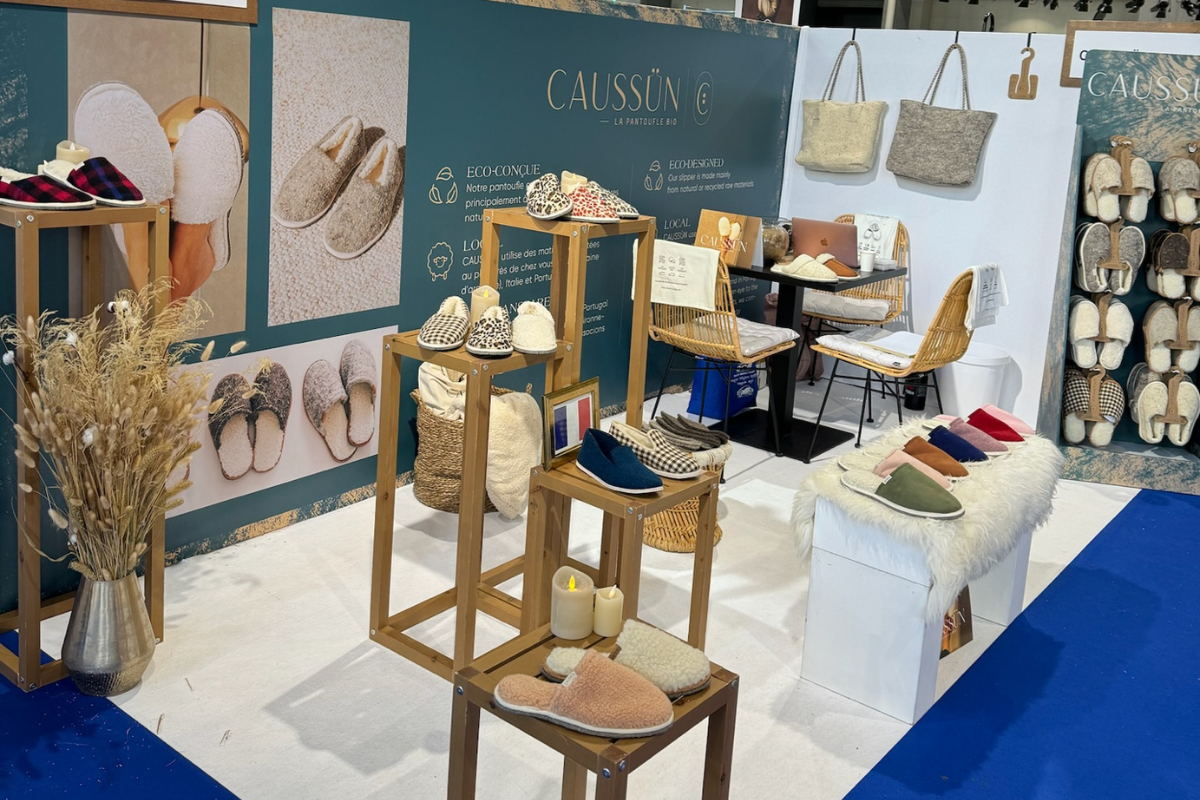
Reducing our ecological footprint: the secrets of our slippers’ materials
At Caussün, we firmly believe that every choice we make as a company has a direct impact on our planet. That's why we've taken a responsible approach to selecting the materials that make up our slippers.
Natural and recycled materials at the heart of our products
Our slippers are made from materials carefully chosen for their low environmental impact :
-
Recycled wool :
Made from production scraps or used textiles, this wool helps limit waste while reducing the demand for new production, which often requires a lot of natural resources. The production of recycled wool requires much less energy and water than that of virgin wool, and it helps reduce textile waste. -
Linen from Normandy :
Grown locally in France, linen is a sustainable material par excellence. Its cultivation requires very little water and no pesticides. By opting for French linen, we support local agriculture while minimizing our carbon footprint. -
Organic cotton :
Grown without pesticides or chemical fertilizers, organic cotton is a sustainable alternative that respects both soils and farmers. Its production also consumes less water than conventional cotton. This material is soft, breathable and perfect for providing optimal comfort in our slippers. -
Cork :
Derived from the bark of the cork oak tree, this material is 100% natural, biodegradable and renewable. Its harvest does not harm the tree, making it a sustainable resource. Lightweight, insulating and resistant, cork is used in our products for its many ecological and practical qualities. -
Recycled PET :
Our soles are made from recycled plastic bottles. This choice not only gives a second life to this waste, but also reduces the production of new plastic, which is a major source of global pollution.
Comparison with conventional materials
To better understand the positive impact of our choices, let's compare these materials with those often used in conventional slippers:
-
Synthetic fibers (polyester, acrylic): Produced using petrochemicals, they consume enormous quantities of fossil energy. Their manufacture also emits significant quantities of CO2 and contributes to the pollution of marine ecosystems by microplastics.
-
Synthetic foams:
Often used for soles, they are made from virgin plastic and take centuries to decompose, contributing to the accumulation of waste. -
Non-durable leather:
Although renowned for its durability, conventional leather is often treated with toxic chemicals, such as chromium. Additionally, the leather industry is very water-intensive and generates significant methane emissions.
By choosing natural or recycled materials , we contribute to a significant reduction in CO2 emissions, water consumption and waste accumulation.
An eco-responsible choice that makes a difference
Every pair of Caussün slippers embodies our commitment to more environmentally friendly fashion. We believe that every little gesture counts , and by choosing our products, our customers become agents of change .





Leave a comment
This site is protected by hCaptcha and the hCaptcha Privacy Policy and Terms of Service apply.